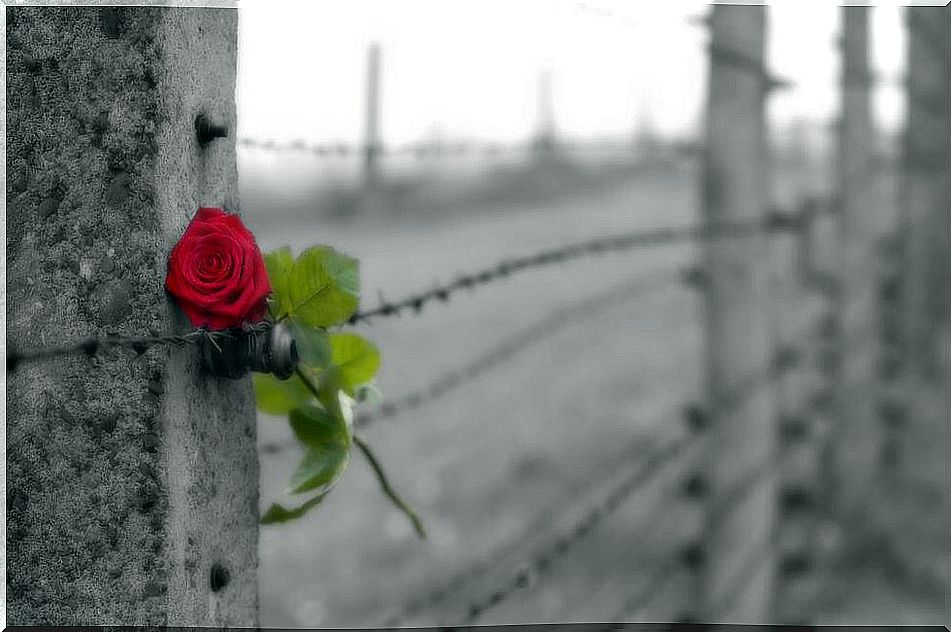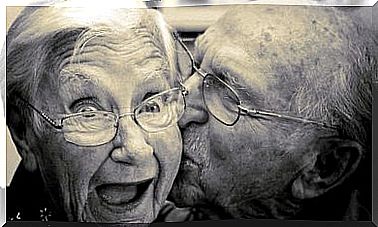What Goes Through The Head Of The Survivor Of A Tragedy?

One of the situations in which psychologists can play a more important role, unfortunately, is in the moments and days after a tragedy. Unfortunately we all have in our memory several catastrophes or attacks that ended the lives of many people.
Endings that left broken families in grief over a loss as important as it was difficult to assimilate. Nobody thinks that the son who has left home at 7, like every day, to go to the University will never come back. That that quick goodbye kiss will be the last. Nor does anyone go to bed thinking that the alarm clock in the morning will be the vibration of the walls and the noise of hundreds of objects falling against the floor. No one except those who have already been close.
There are other victims who stay with us and they are the survivors, those people who have lived through the tragedy closely and have avoided it, with more or less consequences. The fact is that their hearts continue to beat, but from that moment on, their lives change completely. It is your psychological situation that we will talk about in this article.
What happens to the survivors?
To be born again, that is the feeling that reigns among people who have looked death in the eye and avoided it. Many in fact live the simile with a more real parallel than the application of the metaphor to the moment in which they wake up again in the hospital. This is so because the tragedy has caused them injuries that force them to make a new great adaptation to the world.
This is also the case because the feeling of control ( locus of control ) has been greatly affected. In these cases, the victims look for trustworthy people and cling to them as elements of protection and as spaces of safety. Thus, they will have to gradually separate themselves from them with a fear similar to that a child has when it moves away from the proximity of its parents.
Going back to a world in which colors are no longer the same, in which closed spaces are camouflaged traps and in which backpacks carry bombs is not easy. Doing so is easier if it has happened outside of the usual environment. In these cases, it is easier to encapsulate the experience in a foreign space-time.

People who have been close to such a situation need an explanation, the formula that led them to such a vulnerable situation. Thus, people who have suffered the tragedy outside of their usual environment may think that if they do not return to that place it will not happen again. However, for people who have suffered the tragedy in an environment that they thought they controlled and in which they felt totally safe, it will be more complicated.
A guilt that is much more powerful in the event that loved ones died in the tragedy and with whom the survivor was at that time. In fact, the greatest exponent of this guilt is found when it was the survivor who somehow convinced the deceased that they had to make that trip or be in that place that day.
The psychologist’s work with the survivor
The psychological state of a person who has survived a tragedy is much more complex than what we have related in these brushstrokes. However, this scheme is useful to understand the main points on which psychological therapy has to influence. These are:
The validation of the feelings of the person who has survived. We have to convey to the person that it is logical for him to feel this way, that he is a coherent product of the situation to which he has been exposed. Therefore, he is neither a freak nor a madman.
In this sense, there are people who after such a tragedy feel unbearable pain. However, there are people who receive such a brutal impact that their emotional sensitivity is totally anesthetized. That is why in a tragedy of this type we can see people writhing in pain and people who are absent and with a face so static that it seems chiseled in marble.
Recovery of the feeling of control and at the same time acceptance of the lack of it : it is essential that the person regain a balance in this duality that does not paralyze them. We are not going to deny that there are aspects of your life that you do not control, it is about gradually delimiting certain areas where the person can verify that contingency relationships are met.
Help him gradually rebuild his circle of safety : in this sense, the psychologist’s job is to guide and supervise the progression along this line. In the case of post-traumatic stress, avoid that the stimuli that produce it are generalized as little as possible and control the exposure to them, so that the avoidance response is not reinforced by the decrease in anxiety.
Although there are many more, the last aspect we are going to focus on is helping the survivor with their social relationships. It is not strange that the person, after the tragedy, feels very different from the people around him. A situation that they have not experienced, which makes him different in part because he cannot find the exact words to convey what he feels to them. They need the people they love, but at the same time they feel that they are not understood by them.

One day, one hour, one place. No more is needed for a life to change completely. This change is so great that it affects everything. Sounds, colors, smells, emotions, thoughts, or feelings. Some die and others die and are born at the same time.
Note: this article is dedicated to all those psychologists who work in these moments in which what has been demolished is a lot and what is left standing very little. His work – especially human, and for which it is necessary to have a special sensitivity that allows the pain to wet but not heat it – is invaluable.









